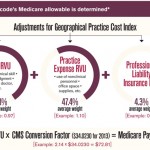The ACR is searching for practicing physicians interested in coding and reimbursement issues to represent the ACR on the AMA/Specialty Society Relative Value Scale Update Committee (RUC) and Current Procedural Terminology (CPT) Committee. The RUC and CPT Committee comprise physicians representing the national medical specialty societies who advise the CPT Editorial Panel on matters concerning coding and nomenclature, and advocate for fair reimbursement on physician work and practice expense values to be assigned to new or revised CPT codes.
Our goal is to identify two physicians who can fill the position of the primary CPT advisor and the alternate RUC advisor. Selected advisors will have the opportunity to gain an understanding of the complex process and politics involved in determining physician payment.
To guarantee that physician services across all specialties are well represented, the AMA established CPT and RUC. The uniformed coding system used across the country to report medical services relies on the CPT process to simplify reporting and increase accuracy and efficiencies. The panel is tasked with safeguarding the integrity of CPT codes by keeping them up to date and reflecting the latest technology and care provided to patients. The method to maintain the codes is an open process and convenes meetings three times a year to solicit direct input from practicing physicians, manufacturers and advisors from over 100 societies.
The RUC makes recommendations annually to the Centers for Medicare and Medicaid Services as it relates to medical services through an expert panel of physicians. It is comprised of a volunteer group of 31 physicians and 300 medical advisors that represent each sector of medicine, including primary care physicians and specialists; currently, Tim Laing, MD, is a panel member representing rheumatology. The panel works through various committees to regularly review medical services to determine appropriate values.
Responsibilities of the primary CPT advisor:
- Have a basic understanding of coding and reimbursement;
- Work with staff and coalitions to develop code change proposals for new and/or revised codes;
- Be available to participate in conference calls throughout the year regarding codes being worked on or revised, based on the ACR’s involvement;
- Communicate and coordinate with nominating specialty society staff and physician leadership, including the society’s delegation to the AMA House of Delegates; and
- Show willingness and flexibility to travel—the CPT panel meets three times yearly, usually in the months of February, May and September.
Responsibilities of the alternate RUC advisor:
- Understand physician work and practice expense values as they relate to reimbursement;
- Work with staff and the primary RUC advisor to develop surveys;
- Be available to participate in several conference calls throughout the year regarding codes being worked on or revised, based on the ACR’s involvement; and
- Show willingness and flexibility to travel—the RUC panel meets three times yearly, usually in the months of January, April and October.
The College’s advisors to the AMA committees, along with staff, play an important role on behalf of rheumatology practices when new codes are developed or if existing codes are taken back for descriptor or value changes.
